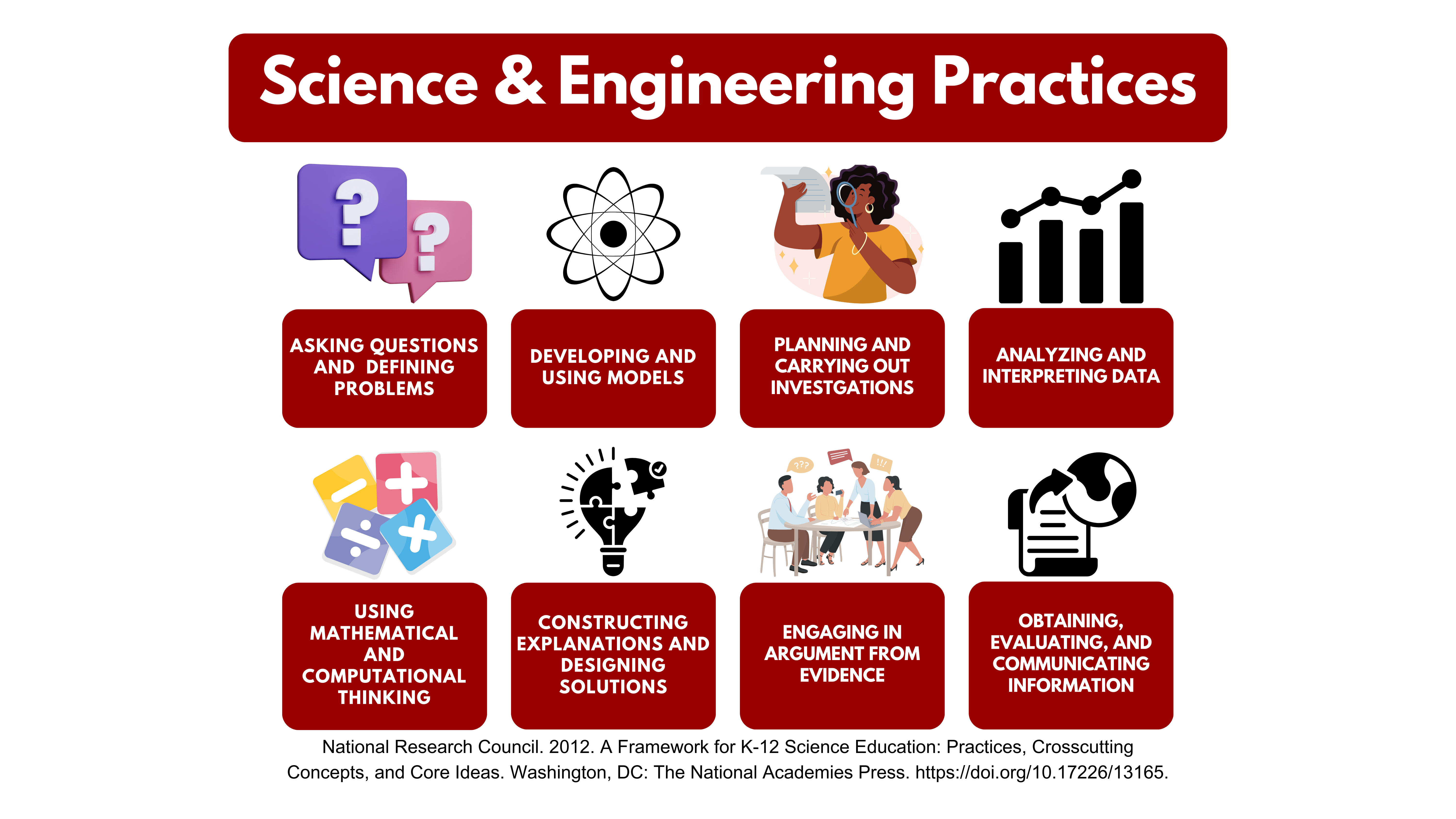Sustained STEM Support (S-Cubed)
S-Cubed Professional Development focuses on developing teachers' use of Science & Engineering Practices (SEPs) to meet new NC Science Standards
Are you a school or system navigating the transition to the new NCSCOS for Science? Look no further! Our professional development packages are specifically designed to support teachers in implementing the 2023 K-12 Science Standards and Science and Engineering Practices (SEPs). The professional development works with teachers on how to shift their teaching, curriculum, lessons, and activities to include more SEPs and meet the new Standards using modeling practices. Teachers receive targeted professional development, on-campus coaching and/or co-teaching, and “just in time” support through virtual coaching.
To learn more about this program from the staff of The Science House, please join us for an online information session scheduled for June 5, 2024, at 2:00 PM. To attend this Zoom session, please register using the following link.
Register for June 5th Info Session

Quotes from Previous Participating Teachers
“This was probably the best professional development I have ever done. It included every aspect of teaching but not in an isolated manner (not just technology, not just content, not just grading). It was everything incorporated as one whole learning event, which greatly mimics what teaching is like in a real classroom. I am very satisfied with the support I received. I am very comfortable with calling colleagues and instructors from the project.”
“I feel that I have become a more effective teacher. I am doing a lot more hands-on, student-centered activities, and a whole lot more Socratic questioning. It has completely changed my teaching style. I find myself using modeling techniques in my other classes as well. I also do a lot less grading of papers, as I use the small and large group discussions to assess my students’ knowledge. My principal has observed me modeling twice this year, and is very impressed with it. She has even asked me to let other teachers come observe me so that they can see the student engagement and higher-level thinking that happens in the class.“
“This was hands down the best professional development I have ever received thus far in my 8 years of teaching. It changed me in the role that I play as a teacher. I changed from lecture-based teaching to a more sustainable and engaging student-centered teacher. Eventually I will allow my students to take the reins even more as I have more experience in this pedagogy. Thank you so much for allowing me to participate. I have really enjoyed and learned a lot from this experience. It has been wonderful.”
“With this pedagogy, I feel my students grow enormously in critical thinking, communication, and creativity. They grow in confidence in their own observation and reasoning ability. It is a lot of fun to see them resist at the beginning, convert one by one, and end up really proud and happy of their newfound confidence and critical reasoning! I can see how involvement in the practices of science gives students an appreciation of what science is.
“I feel that this is the best pedagogy to get students motivated, active, and responsible for their own learning. I feel that it helps SAT and ACT scores by teaching students how to put concepts together and reason problems, questions, and graphs out on their own.“I feel that this is the best pedagogy to get students motivated, active, and responsible for their own learning. I feel that it helps SAT and ACT scores by teaching students how to put concepts together and reason problems, questions, and graphs out on their own.”
“I have completely re-vamped my teaching methods as well as the sequencing of the topics/units within my courses. I have been able to change a lot of the instruction that I do to allow my students the freedom to explore and develop their own ideas based on the activities and labs that we do. I have been able to adjust activities for my students that allow me to adjust to the change in teaching style and to slowly allow them to adjust to the new style of learning.“